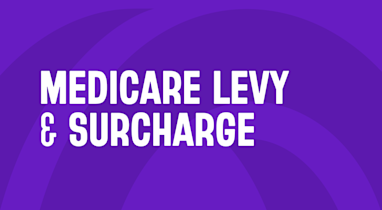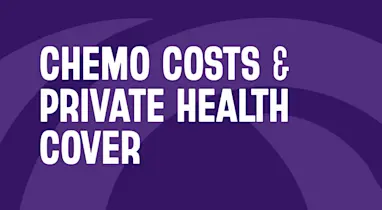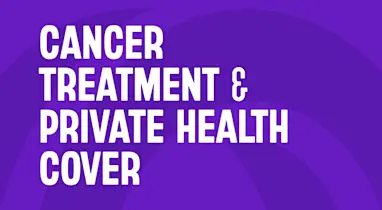less than
2 mins
What is Health Insurance Excess?
Most health insurance providers let you choose how much you pay out-of-pocket when you make a claim on your hospital cover. It’s a similar principal to claiming on your car insurance after an accident
This amount is called health insurance excess. A higher excess can bring your premiums down, but you’ll need to be able to pay this sum when you make a claim.
Here’s how it works.
Key Points
Choosing a higher level of health insurance excess can mean lower premiums
You choose your level of excess when you take out your policy
You pay one excess amount per person on the policy each year, if you go to hospital
What is excess in health insurance?
Health insurance excess, or hospital excess, is an amount of money you agree to pay if you go to hospital as a private patient.
The amount of excess varies between $0 and $1,500, but the more you select to pay, the lower your health insurance premium will be.
If you choose to be treated as a private patient, then you’ll need to be prepared to pay the excess from your personal savings.
Learn more about health insurance with these guides
What is the purpose of a health insurance excess?
Health insurance excess gives you a way to lower your health insurance premiums in return for agreeing to pay a certain amount from your savings if you go to hospital.
Can you claim back excess on health insurance?
No, you can’t claim back any hospital excess payments from your insurer. It’s an agreement between you and your health fund as to how much out-of-pocket excess cost you are willing to cover in exchange for lower premiums.
How often do you pay health insurance excess?
How often you pay your excess depends on your health fund.
With some health funds you’ll only pay the excess for the first hospital admission each year whereas with others you’ll need to pay the excess every time you are admitted to hospital.
Not sure how often your chosen fund applies an excess? Compare Club’s specialists can help. We’ll take you through all the excess options.
What is the difference between an excess and a co-payment?
When you sign your policy for hospital cover, most health funds will allow you to set your excess limit and/or your co-payment limit.
Your excess is usually payable upfront when you are admitted to hospital - before your health fund pays any benefits.
A co-payment is the agreed amount you’ll pay per day when you are in hospital, which usually has an annual limit.
Depending on your health insurer, this could be $50 per day for a shared or private room as well as day surgery*, but varies between health insurers.
Is it better to have high or low excess?
It depends. It’s up to you whether the trade-off between out-of-pocket excess costs and cheaper premiums is worthwhile.
For example, if you’re healthy and think you’re unlikely to have to go to hospital, a higher excess can be beneficial since you will be lowering your premiums by agreeing to a fee you probably won’t have to pay.
On the other hand, if you think you might need surgery or have a condition that may require a hospital visit, setting a lower excess could be more affordable.
Most people set their excess based on what they think they can afford.
If you can afford the out-of-pocket costs for a hospital visit, then you may be comfortable with a higher excess.
What does no excess mean in health insurance?
No excess means that you don’t pay an excess when you’re admitted to hospital.
This means your premiums may be higher, but you generally won’t have any out-of-pocket costs for hospital care.
How can I save on private health insurance?
Adjusting your excess is just one of the ways to bring down your premiums, but you’ll need to be ok with paying higher out-of-pocket expenses.
Before you can set an excess, however, you’ll need to choose a policy that works best for you.
If you’re thinking about switching your hospital cover, you can quickly and easily compare policies with Compare Club by clicking the button below.
Choosing the right health insurance can also help you save on your tax return.
COMPARE & SAVEWhat's new in health insurance?
Biggest hike in years: Health insurance premiums will rise by an average of 4.41% on April 1 — the largest hike since 2018 and noticeably higher than last year’s increase of 3.73% (in 2025).
Most Aussies face higher hikes: Compare Club’s data suggests that due to the five largest funds holding nearly 80% of the market, the average increase for the majority of policyholders is closer to 5.00%.
Review your policy: Now’s the time to check if your policy still fits—better deals could be available.
Sources
*Private Health Ombudsman, Top Hospital Cover with Co-Payments, accessed October 2021.
Things You Should Know
*As our customer you'll be provided with quotes directly from the insurer for the product you intend to purchase. We manage the application and deal with the administration work and insurer. We do not charge you a fee for the service we provide, the insurer simply remunerates us in return for setting up your policy. The financial and insurance products compared on this website do not necessarily compare all features that may be relevant to you. Comparisons are made on the basis of price only and different products may have different features and different levels of coverage. Compare Club does not compare all policies available in Australia and our partner insurers may not make all policies available to Compare Club.
This guide is opinion only and should not be taken as medical or financial advice. Check with a financial/medical professional before making any decisions.
Chris Stanley is the sales & operations manager of health insurance at Compare Club. With extensive experience and expertise, Chris is a trusted leader known for his deep understanding of health insurance markets, policies, and coverage options. As the sales & operations manager of health insurance, Chris leads a team of dedicated professionals committed to helping individuals and families make informed decisions about their health insurance needs.

Meet our health insurance expert, Chris Stanley
Chris's top health insurance tips:
- 1
Australia’s public health system is world-class, but wait times for public hospitals can be long, inconvenient - and leave you living in constant pain while you wait.
- 2
An appropriate private health insurance policy can speed up your surgery, relieving your pain sooner.
- 3
Family health cover means your children are covered under the same policy as you.
- 4
Many health insurance policies come with a 12-month waiting period for pregnancy-related cover, so it’s a good idea to get a family policy organized well before starting your family. This means your child will be covered from birth until at least their early twenties (depending on which health fund you select).




